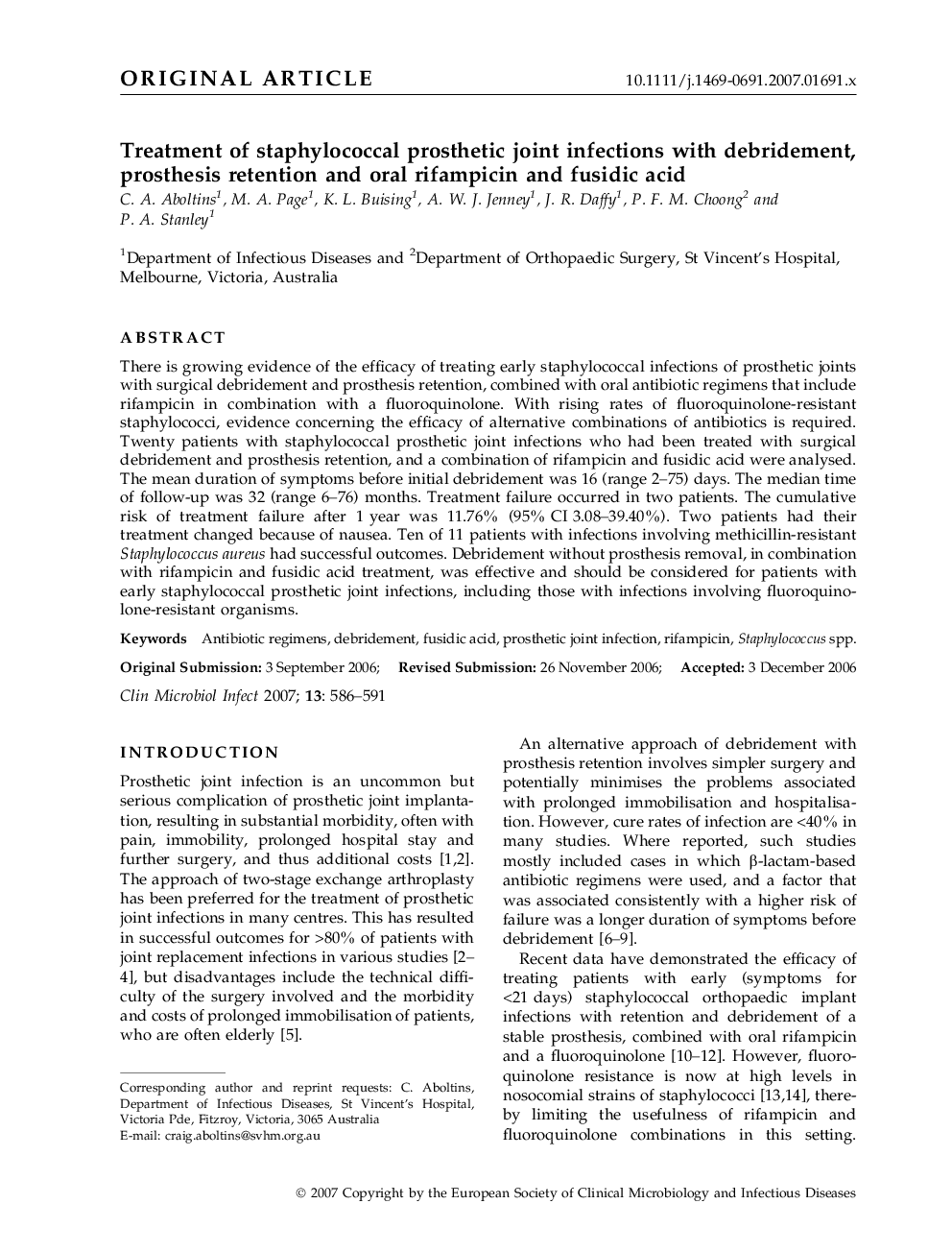| Article ID | Journal | Published Year | Pages | File Type |
|---|---|---|---|---|
| 3398090 | Clinical Microbiology and Infection | 2007 | 6 Pages |
ABSTRACTThere is growing evidence of the efficacy of treating early staphylococcal infections of prosthetic joints with surgical debridement and prosthesis retention, combined with oral antibiotic regimens that include rifampicin in combination with a fluoroquinolone. With rising rates of fluoroquinolone-resistant staphylococci, evidence concerning the efficacy of alternative combinations of antibiotics is required. Twenty patients with staphylococcal prosthetic joint infections who had been treated with surgical debridement and prosthesis retention, and a combination of rifampicin and fusidic acid were analysed. The mean duration of symptoms before initial debridement was 16 (range 2–75) days. The median time of follow-up was 32 (range 6–76) months. Treatment failure occurred in two patients. The cumulative risk of treatment failure after 1 year was 11.76% (95% CI 3.08–39.40%). Two patients had their treatment changed because of nausea. Ten of 11 patients with infections involving methicillin-resistant Staphylococcus aureus had successful outcomes. Debridement without prosthesis removal, in combination with rifampicin and fusidic acid treatment, was effective and should be considered for patients with early staphylococcal prosthetic joint infections, including those with infections involving fluoroquinolone-resistant organisms.
